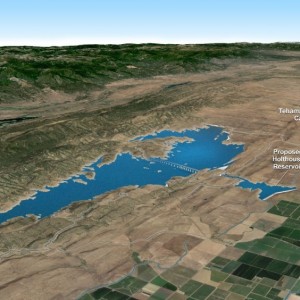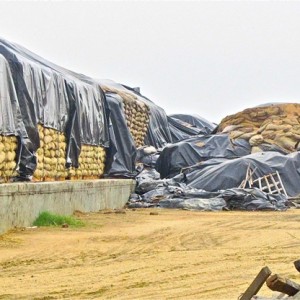The Stream, November 3: IPCC Report Urges Climate Change Action Now
The Global Rundown |
The Intergovernmental Panel on Climate Change is urging the world to take action now. Climate change is being linked to floods and water scarcity in Pakistan, sinking cities in Southeast Asia, and pushing back progress on waterborne diseases in China. A lack of clean water and sanitation is threatening babies in Tanzania, while arsenic contamination is leading to heart problems in the United States. South Africa needs to spend billions to avoid a water crisis, and Ireland is protesting water charges. El Salvador communities say water-intensive industries are taking their water, and oil companies in Iraq are looking for their own water supplies.
“Continued emission of greenhouse gases will cause further warming and long-lasting changes in all components of the climate system, increasing the likelihood of severe, pervasive and irreversible impacts for people and ecosystems.”—Intergovernmental Panel on Climate Change in a new report released Sunday. (The New York Times)
By The Numbers |
100 Protests staged across Ireland to oppose new water charges. BBC
$26 billion Amount South Africa needs to spend on water in the next 5 years to avert a crisis. News24
44 percent Population in Tanzania with access to safe water and adequate sanitation, where lack of clean water has taken a toll on newborns. The Telegraph
Science, Studies, And Reports |
Increasingly intense rains and floods in Pakistan are exacerbating water scarcity by preventing groundwater recharge, scientists at the Pakistan Meteorological Department found. Reuters
Rising sea levels and subsiding land due to groundwater extraction are combining to sink coastal communities in places like Thailand, India and Indonesia, according to a study published in Environmental Research Letters. NBC News
Climate change could push back China’s progress on fighting waterborne diseases by seven years, largely due to warmer water temperatures, according to a study published in Nature Climate Change. Think Progress
Arsenic contamination in private water wells in the United States is linked to heart problems like heart attacks and strokes, scientists at the Johns Hopkins Bloomberg School of Public Health found. The New York Times
On The Radar |
Communities in El Salvador located near a number of large, water-intensive industries are facing water scarcity, despite living atop one of the country’s largest aquifers. Guardian
Oil companies in Iraq are looking to build their own, independent water supply systems to sustain reservoir pressures. Platts
A news correspondent for Circle of Blue based out of Hawaii. She writes The Stream, Circle of Blue’s daily digest of international water news trends. Her interests include food security, ecology and the Great Lakes.
Contact Codi Kozacek







Leave a Reply
Want to join the discussion?Feel free to contribute!